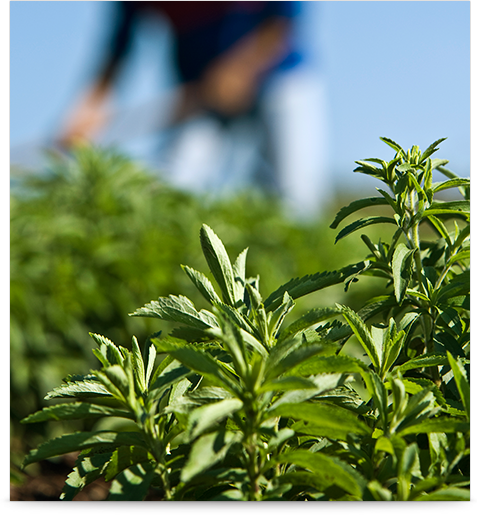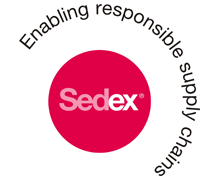Sustainability & Transparency
From the start, the Truvía® brand was built upon a foundation of sustainability and transparency. These business drivers have led to the creation of a common bond across the brand, a way of thinking and working that continuously seeks out economic, environmental and social opportunities.
Stewarding Natural Resources
Producing good crops depends on clean water, healthy soil, clean air and sunlight. As a food and agriculture company, our awareness of the importance of taking care of natural resources over the long term cannot be overstated. We believe the best way to ensure proper care is to implement a system that strives for continuous improvement.
We started by undertaking a life cycle analysis to identify the major environmental impact areas in the Truvía® value chain. The results of our analysis brought four key areas to the forefront: greenhouse gas emissions, water use, waste and land management. Our commitments are centered around these areas:
![]()
Carbon
Reduce our carbon footprint by 50% in 2015 from a 2010 baseline to become carbon neutral by 2020.
![]()
Water
Ensure all processed water is returned in the same quality in which it was taken, and reduce net depletion by 25% by 2020.
![]()
Waste
Reduce waste by 50% across the supply chain in 2015 in an effort to become zero waste by 2020
![]()
Land
Ensure our stevia is not grown on conservation or protected land.
Sustainable Sourcing
When Cargill envisioned a stevia business years ago, no commercial stevia supply chain of scale existed. The Truvía® team decided to build a world-class socially and environmentally responsible supply chain from the outset, and, in the process, to set the benchmark for responsible business practice in the stevia industry. This is how that supply chain looks today:
Core Values Guiding the Sustainable Supply Chain
Wherever Truvía® operates, the Truvía® enterprise treats all people and business partners with dignity and respect.A system of self-assessments and third-party audits ensures that the supply chains that bring the product from field to table are managed with integrity and transparency.
The Truvía® Sustainable Agriculture Standard
The stevia agricultural standard the Truvía® business developed is a first for stevia and has set the bar for responsibility across the industry. It is applicable to small-scale farms globally and aims to minimize environmental impact, ensure the health and safety of the producer, align with food safety and traceability requirements, and promote continuous improvement.
The Truvía® stevia standard consists of 135 control criteria in 13 categories:
- Record keeping and internal self-assessment
- Complaints
- Traceability
- Farm history and management
- Worker health, safety and welfare
- Waste and pollution management, recycling and reuse
- Environment and conservation
- Plant propagation material
- Soil and substrate management
- Fertilizer use
- Integrated pest management
- Plant protection products
- Harvesting

The Supplier Ethical Data Exchange
Truvía® manufacturing facilities are members of Sedex (The Supplier Ethical Data Exchange), a not-for-profit organization dedicated to driving improvements in responsible and ethical business practices in global supply chains.

Sedex allows members to store, share and report information in four key areas: labor standards, health and safety, environment and business integrity. By joining Sedex, information is shared on all business practices through both self-assessments and third-party audits.
In the interest of transparency, the Truvía® business chooses to share such information, allowing members to review the data to seek out possible improvements.
 Region
Region
 Australia
Australia
 Brazil
Brazil
 Canada (English)
Canada (English)
 China
China
 España
España
 Israel
Israel
 Italia
Italia
 Middle East (Arabic)
Middle East (Arabic)
 New Zealand
New Zealand
 Philippines
Philippines
 United States
United States
 South Africa
South Africa

